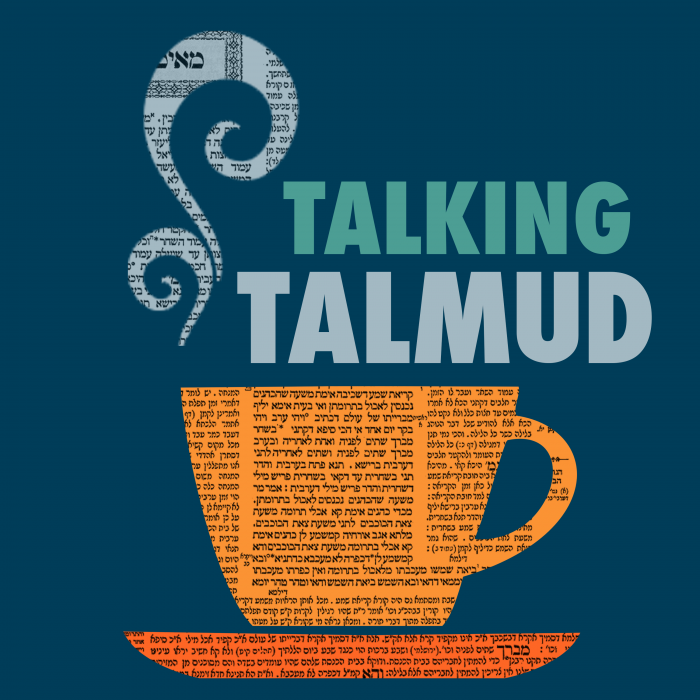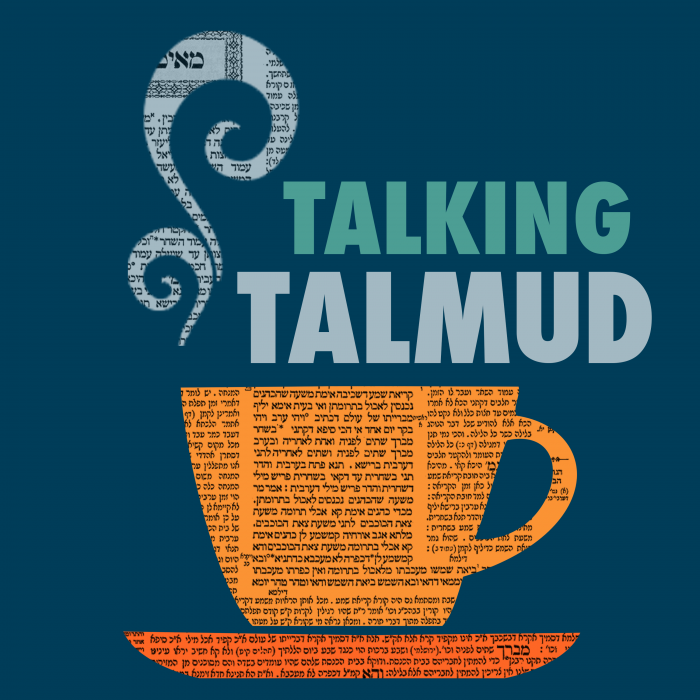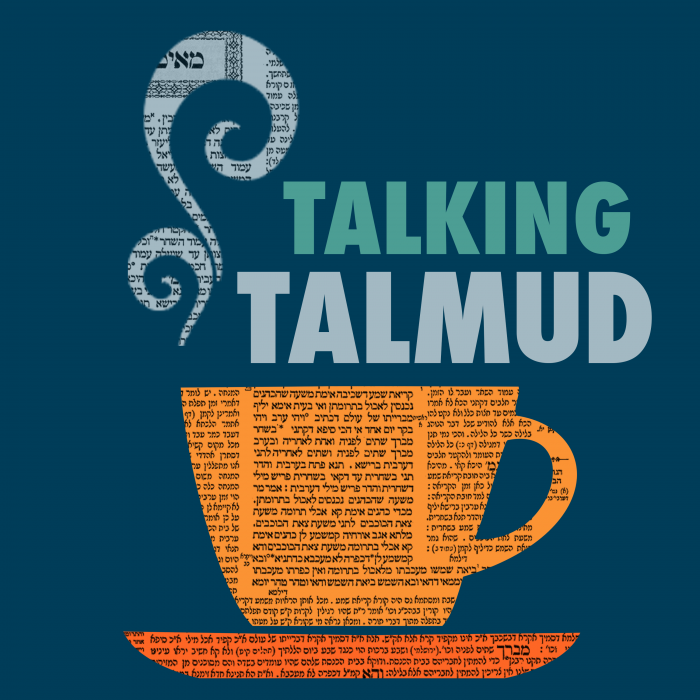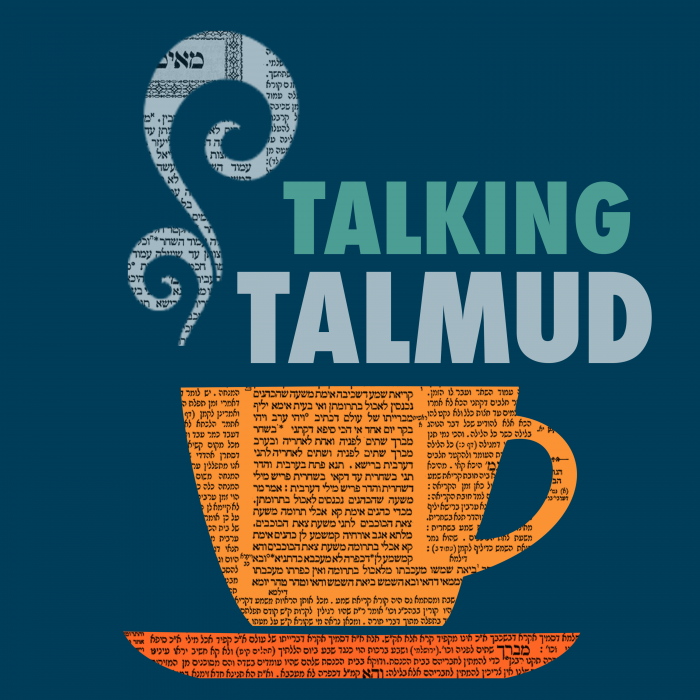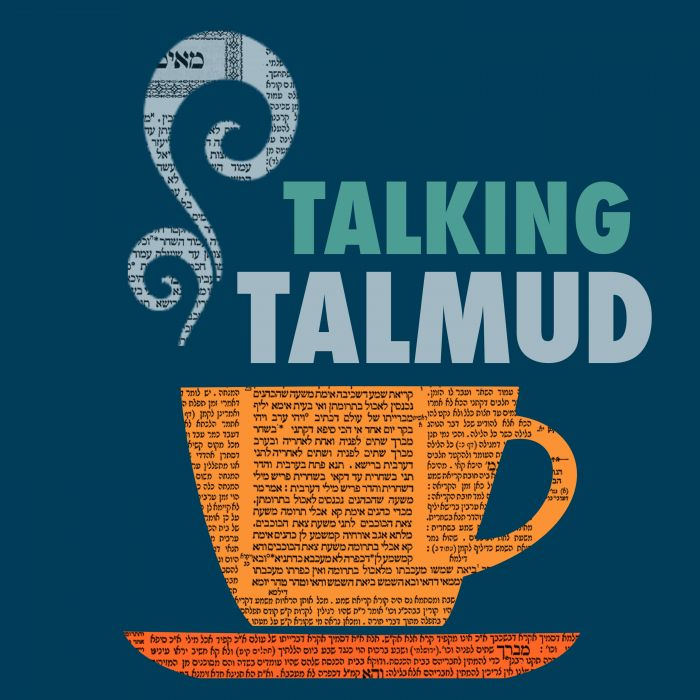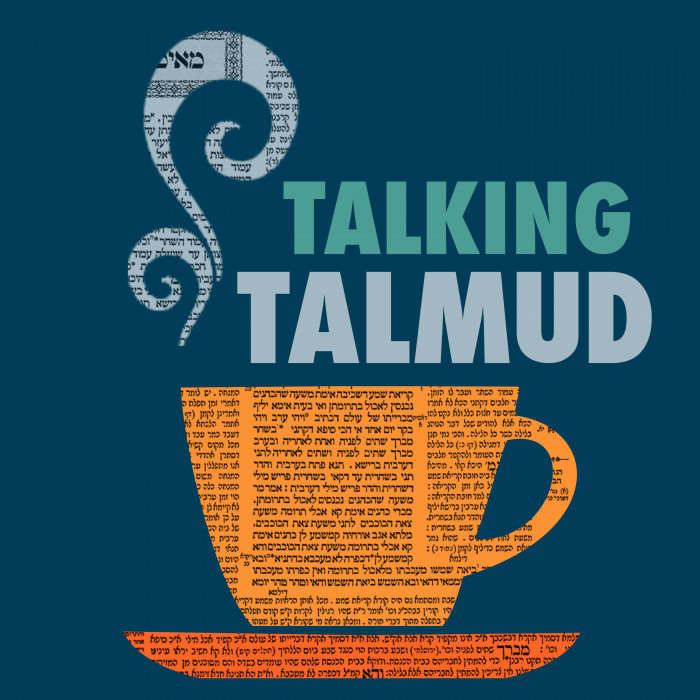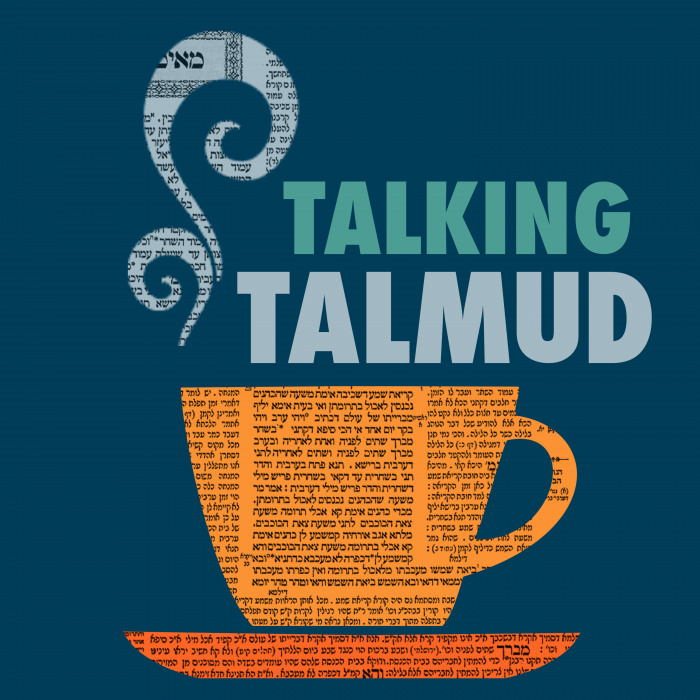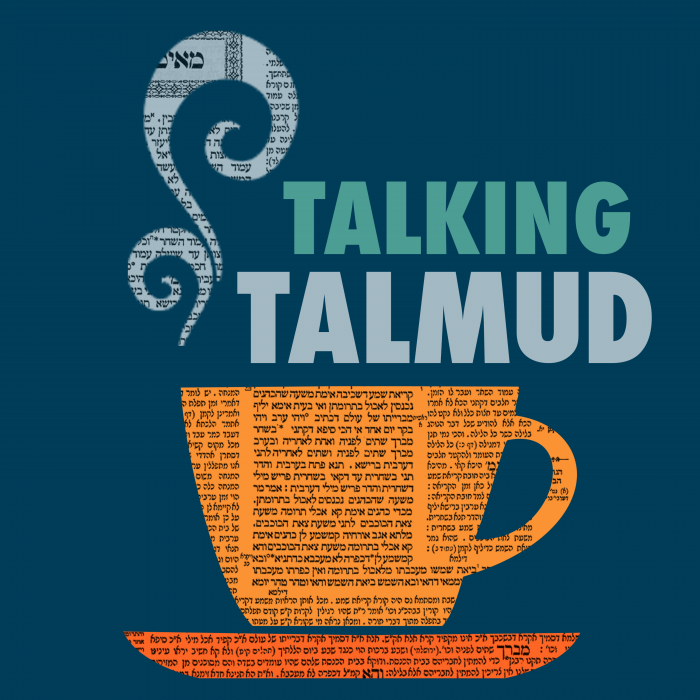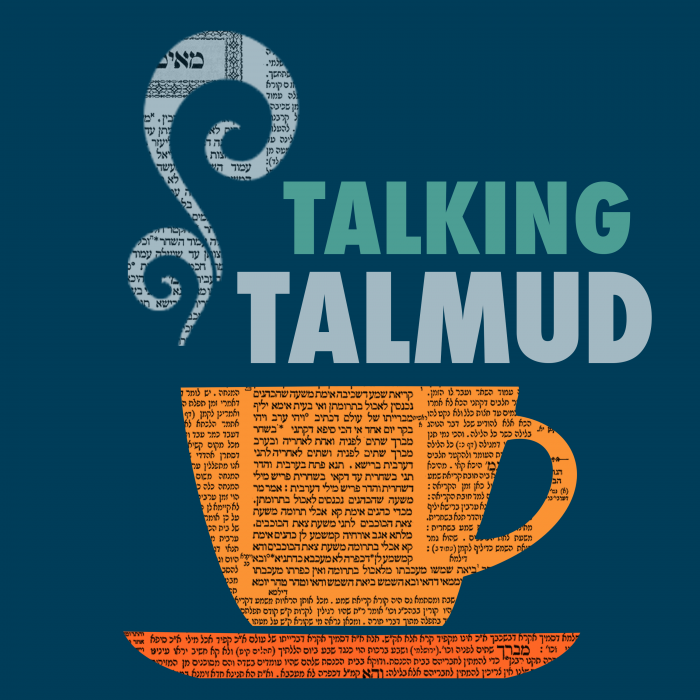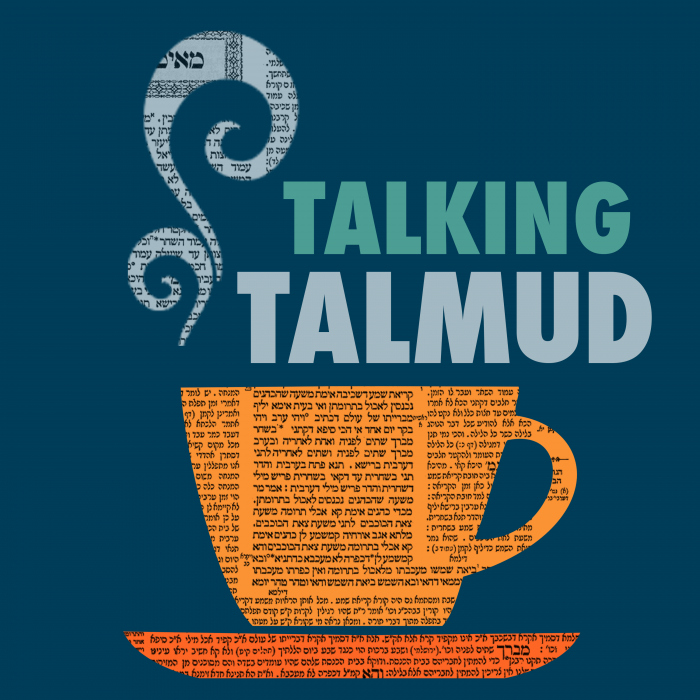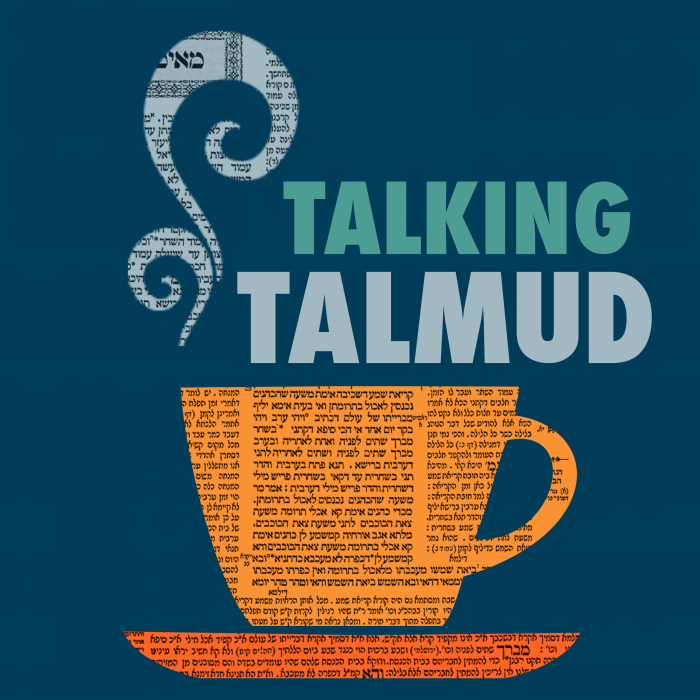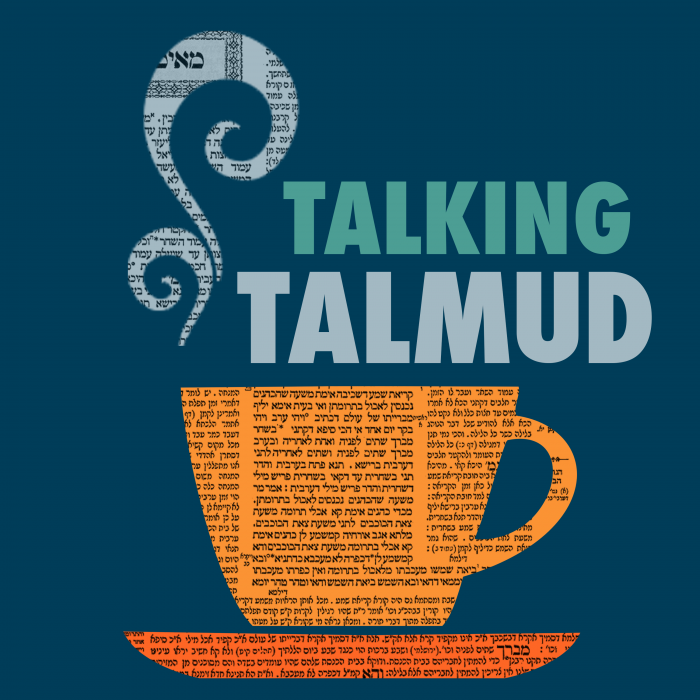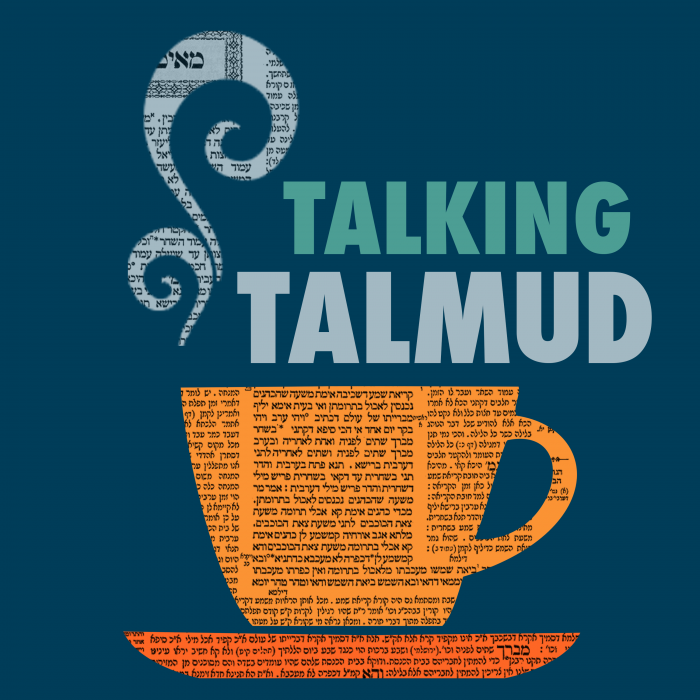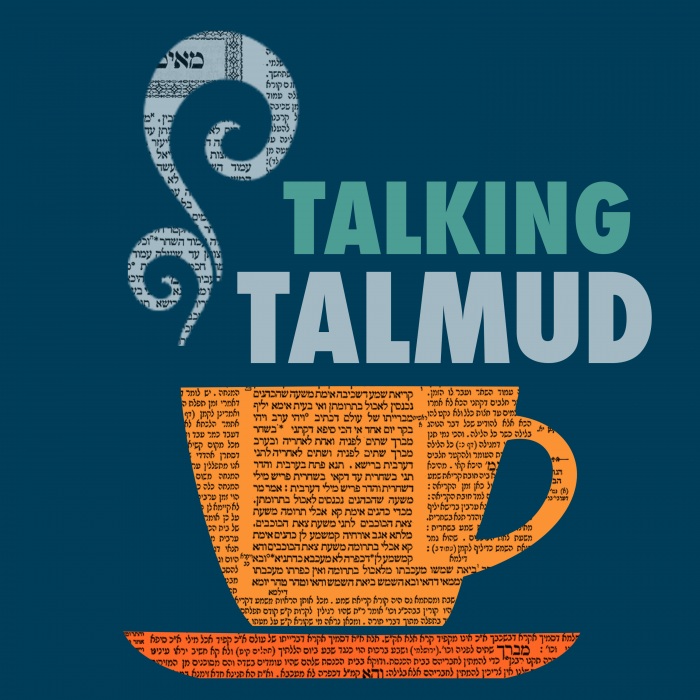Rav Papa asked Abaye why miracles happened in previous generations but do not happen to them? Women, Canaanite slaves and children are exempt from shema and tefillin but are obligated in prayer, mezuza and blessings after the meal. Why? Why does each case need specifying? Why is it not obvious that they are exempt from time bound commandments and there is no need to specify? Why are women obligated in prayer – is it not a time bound commandment? Is women’s obligation to make a blessing after the meal the same as men’s in which case they can say it on behalf of a man and help him fulfill his obligation? Ezra instituted that one who has a seminal emission cannot learn Torah until he goes to a mikveh. What should he do regarding saying shema and blessing after the meal? If one thinks something in his heart, is it as if he said it?
This week’s learning is sponsored by Nira Feldman in loving memory of her mother, Faye Darack Z’L 3rd yahrzeit. “She was a dedicated Hadran learner and continues to inspire us with her curiosity and love of learning each day. We miss her deeply.”
Want to dedicate learning? Get started here:


Today’s daily daf tools:
This week’s learning is sponsored by Nira Feldman in loving memory of her mother, Faye Darack Z’L 3rd yahrzeit. “She was a dedicated Hadran learner and continues to inspire us with her curiosity and love of learning each day. We miss her deeply.”
Today’s daily daf tools:
Delve Deeper
Broaden your understanding of the topics on this daf with classes and podcasts from top women Talmud scholars.
New to Talmud?
Check out our resources designed to help you navigate a page of Talmud – and study at the pace, level and style that fits you.
The Hadran Women’s Tapestry
Meet the diverse women learning Gemara at Hadran and hear their stories.
Berakhot 20
אֲבָל מִטַּמֵּא הוּא לְמֵת מִצְוָה. אַמַּאי, לֵימָא: ״אֵין חׇכְמָה וְאֵין תְּבוּנָה וְאֵין עֵצָה לְנֶגֶד ה׳״!
but he does become impure for a met mitzva. Here too, the question is asked: Let us say that the obligation to bury a met mitzva, which is predicated on the preservation of human dignity, should not override mitzvot explicitly written in the Torah, as it is stated: “There is neither wisdom, nor understanding, nor counsel against the Lord.”
שָׁאנֵי הָתָם, דִּכְתִיב ״וְלַאֲחוֹתוֹ״.
The Gemara answers: There it is different, as it is explicitly written: “And his sister,” from which we derive that although he may not become ritually impure to bury his sister, he must do so for a met mitzva.
וְלִיגְמַר מִינַּהּ! שֵׁב וְאַל תַּעֲשֶׂה שָׁאנֵי.
The Gemara suggests: Let us derive a general principle that human dignity takes precedence over all mitzvot in the Torah from this case. This possibility is rejected: This is a special case, because a case of “sit and refrain from action” [shev ve’al ta’aseh] is different. Engaging in the burial of a met mitzva is not actually in contravention of a mitzva. Rather, by doing so he becomes ritually impure and is then rendered incapable of fulfilling that mitzva. We cannot derive a general principle from here that human dignity would also override a Torah prohibition in a case where that prohibition is directly contravened.
אֲמַר לֵיהּ רַב פָּפָּא לְאַבָּיֵי: מַאי שְׁנָא רִאשׁוֹנִים דְּאִתְרְחִישׁ לְהוּ נִיסָּא, וּמַאי שְׁנָא אֲנַן דְּלָא מִתְרְחִישׁ לַן נִיסָּא? אִי מִשּׁוּם תַּנּוֹיֵי, בִּשְׁנֵי דְרַב יְהוּדָה כּוּלֵּי תַּנּוֹיֵי בִּנְזִיקִין הֲוָה, וַאֲנַן קָא מַתְנִינַן שִׁיתָּא סִדְרֵי. וְכִי הֲוָה מָטֵי רַב יְהוּדָה בְּעוּקְצִין, הָאִשָּׁה שֶׁכּוֹבֶשֶׁת יָרָק בַּקְּדֵרָה, וְאָמְרִי לַהּ זֵיתִים שֶׁכְּבָשָׁן בְּטַרְפֵיהֶן טְהוֹרִים, אָמַר: הֲוָיוֹת דְּרַב וּשְׁמוּאֵל קָא חָזֵינָא הָכָא. וַאֲנַן קָא מַתְנִינַן בְּעוּקְצִין תְּלֵיסַר מְתִיבָתָא, וְאִילּוּ רַב יְהוּדָה כִּי הֲוָה שָׁלֵיף חַד מְסָאנֵיהּ, אָתֵי מִטְרָא, וַאֲנַן קָא מְצַעֲרִינַן נַפְשִׁין וּמִצְוָח קָא צָוְחִינַן, וְלֵית דְּמַשְׁגַּח בַּן.
The Gemara responds: In the context of the discussion whether or not human dignity overrides honoring God in the sense of fulfilling his mitzvot, Rav Pappa said to Abaye: What is different about the earlier generations, for whom miracles occurred and what is different about us, for whom miracles do not occur? If it is because of Torah study; in the years of Rav Yehuda all of their learning was confined to the order of Nezikin, while we learn all six orders! Moreover, when Rav Yehuda would reach in tractate Okatzin, which discusses the extent to which the stems of various fruits and vegetables are considered an integral part of the produce in terms of becoming ritually impure, the halakha that a woman who pickles a vegetable in a pot, and some say when he would reach the halakha that olives pickled with their leaves are pure, because after pickling, it is no longer possible to lift the fruit by its leaves, they are no longer considered part of the fruit; he would find it difficult to understand. He would say: Those are the disputes between Rav and Shmuel that we see here. And we, in contrast, learn thirteen versions of Okatzin. While, with regard to miracles, after declaring a fast to pray for a drought to end, when Rav Yehuda would remove one of his shoes the rain would immediately fall, whereas we torment ourselves and cry out and no one notices us.
אֲמַר לֵיהּ: קַמָּאֵי הֲווֹ קָא מָסְרִי נַפְשַׁיְיהוּ אַקְּדוּשַּׁת הַשֵּׁם, אֲנַן לָא מָסְרִינַן נָפְשִׁין אַקְּדוּשַּׁת הַשֵּׁם. כִּי הָא דְּרַב אַדָּא בַּר אַהֲבָה חַזְיַיהּ לְהַהִיא כּוּתִית דַּהֲוָת לְבִישָׁא כַּרְבַּלְתָּא בְּשׁוּקָא. סְבַר דְּבַת יִשְׂרָאֵל הִיא, קָם קַרְעֵיהּ מִינַּהּ. אִגַּלַּאי מִילְּתָא דְּכוּתִית הִיא. שַׁיְּימוּהָ בְּאַרְבַּע מְאָה זוּזֵי. אֲמַר לַהּ: מָה שְׁמִךְ? אֲמַרָה לֵיהּ: מָתוּן. אֲמַר לַהּ, מָתוּן — מָתוּן אַרְבַּע מְאָה זוּזֵי שַׁוְיָא.
Abaye said to Rav Pappa: The previous generations were wholly dedicated to the sanctification of God’s name, while we are not as dedicated to the sanctification of God’s name. Typical of the earlier generations’ commitment, the Gemara relates: Like this incident involving Rav Adda bar Ahava who saw a non-Jewish woman who was wearing a garment made of a forbidden mixture of wool and linen [karbalta] in the marketplace. Since he thought that she was Jewish, he stood and ripped it from her. It was then divulged that she was a non-Jew and he was taken to court due to the shame that he caused her, and they assessed the payment for the shame that he caused her at four hundred zuz. Ultimately, Rav Adda said to her: What is your name? She replied: Matun. In a play on words, he said to her: Matun, her name, plus matun, the Aramaic word for two hundred, is worth four hundred zuz.
רַב גִּידֵּל הֲוָה רְגִיל דַּהֲוָה קָא אָזֵיל וְיָתֵיב אַשַּׁעֲרֵי דִטְבִילָה. אֲמַר לְהוּ: הָכִי טְבִילוּ וְהָכִי טְבִילוּ. אָמְרִי לֵיהּ רַבָּנַן לָא קָא מִסְתְּפֵי מָר מִיֵּצֶר הָרָע? אֲמַר לְהוּ: דָּמְיָין בְּאַפַּאי כִּי קָאקֵי חִיוָּרֵי.
It was also related about the earlier generations, that they would degrade themselves in the desire to glorify God. Rav Giddel was accustomed to go and sit at the gates of the women’s immersion sites. He said to them: Immerse yourselves in this way, and immerse yourselves in that way. The Sages said to him: Master, do you not fear the evil inclination? He said to them: In my eyes, they are comparable to white geese.
רַבִּי יוֹחָנָן הֲוָה רְגִיל דַּהֲוָה קָא אָזֵיל וְיָתֵיב אַשַּׁעֲרֵי דִטְבִילָה. אֲמַר: כִּי סָלְקָן בְּנוֹת יִשְׂרָאֵל וְאָתְיָין מִטְּבִילָה, מִסְתַּכְּלָן בִּי, וְנֶהֱוֵי לְהוּ זַרְעָא דְּשַׁפִּירֵי כְּווֹתִי. אָמְרִי לֵיהּ רַבָּנַן: לָא קָא מִסְתְּפֵי מָר מֵעֵינָא בִּישָׁא? אֲמַר לְהוּ: אֲנָא מִזַּרְעָא דְּיוֹסֵף קָא אָתֵינָא, דְּלָא שָׁלְטָא בֵּיהּ עֵינָא בִּישָׁא, דִּכְתִיב ״בֵּן פּוֹרָת יוֹסֵף בֵּן פּוֹרָת עֲלֵי עָיִן״, וְאָמַר רַבִּי אֲבָהוּ: אַל תִּקְרֵי ״עֲלֵי עָיִן״, אֶלָּא ״עוֹלֵי עָיִן״.
Similarly, the Gemara relates that Rabbi Yoḥanan was accustomed to go and sit at the gates of the women’s immersion sites. Rabbi Yoḥanan, who was known for his extraordinary good looks, explained this and said: When the daughters of Israel emerge from their immersion, they will look at me, and will have children as beautiful as I. The Sages asked him: Master, do you not fear the evil eye? He said to them: I descend from the seed of Joseph over whom the evil eye has no dominion, as it is written: “Joseph is a bountiful vine, a bountiful vine on a spring [alei ayin]” (Genesis 49:22). “Ayin” can mean both “spring” and “eye.” And Rabbi Abbahu said a homiletic interpretation: Do not read it alei ayin, rather olei ayin, above the eye; they transcend the influence of the evil eye.
רַבִּי יוֹסֵי בְּרַבִּי חֲנִינָא אֲמַר מֵהָכָא: ״וְיִדְגּוּ לָרֹב בְּקֶרֶב הָאָרֶץ״, מָה דָּגִים שֶׁבַּיָּם מַיִם מְכַסִּין עֲלֵיהֶם וְאֵין עַיִן הָרָע שׁוֹלֶטֶת בָּהֶם, אַף זַרְעוֹ שֶׁל יוֹסֵף אֵין עַיִן הָרָע שׁוֹלֶטֶת בָּהֶם.
Rabbi Yosei, son of Rabbi Ḥanina, cited a different proof, from Jacob’s blessing of Joseph’s sons, Ephraim and Menashe: “The angel who redeems me from all evil shall bless the young and in them may my name be recalled, and the name of my fathers, Abraham and Isaac, and may they multiply [veyidgu] in the midst of the earth” (Genesis 48:16). Veyidgu is related etymologically to the word fish [dag]. Just as the fish in the sea, water covers them and the evil eye has no dominion over them, so too the seed of Joseph, the evil eye has no dominion over them.
וְאִי בָּעֵית אֵימָא: עַיִן שֶׁלֹּא רָצְתָה לִזּוֹן מִמַּה שֶּׁאֵינוֹ שֶׁלּוֹ — אֵין עַיִן הָרָע שׁוֹלֶטֶת בּוֹ.
And if you wish, say instead: Joseph’s eye, which did not seek to feast on that which was not his, Potiphar’s wife, the evil eye has no dominion over him.
מַתְנִי׳ נָשִׁים וַעֲבָדִים וּקְטַנִּים פְּטוּרִין מִקְּרִיאַת שְׁמַע
MISHNA Women, slaves, and minors, who have parallel obligations in various mitzvot, are exempt from the recitation of Shema
וּמִן הַתְּפִילִּין, וְחַיָּיבִין בִּתְפִילָּה וּבִמְזוּזָה וּבְבִרְכַּת הַמָּזוֹן.
and from phylacteries, but they are obligated in the mitzvot of prayer, mezuza, and Grace after Meals. The Gemara explains the rationale for these exemptions and obligations.
גְּמָ׳ קְרִיאַת שְׁמַע: פְּשִׁיטָא! מִצְוַת עֲשֵׂה שֶׁהַזְּמַן גְּרָמָא הוּא, וְכׇל מִצְוַת עֲשֵׂה שֶׁהַזְּמַן גְּרָמָא נָשִׁים פְּטוּרוֹת?
GEMARA With regard to the mishna’s statement that women are exempt from the recitation of Shema, the Gemara asks: That is obvious, as Shema is a time-bound, positive mitzva, and the halakhic principle is: Women are exempt from any time-bound, positive mitzva, i.e., any mitzva whose performance is only in effect at a particular time. Shema falls into that category as its recitation is restricted to the morning and the evening. Why then did the mishna need to mention it specifically?
מַהוּ דְתֵימָא: הוֹאִיל וְאִית בַּהּ מַלְכוּת שָׁמַיִם, קָמַשְׁמַע לַן.
The Gemara replies: Lest you say: Since Shema includes the acceptance of the yoke of the kingdom of Heaven, perhaps women are obligated in its recitation despite the fact that it is a time-bound, positive mitzva. Therefore, the mishna teaches us that, nevertheless, women are exempt.
וּמִן הַתְּפִלִּין. פְּשִׁיטָא! מַהוּ דְתֵימָא: הוֹאִיל וְאִתַּקַּשׁ לִמְזוּזָה — קָמַשְׁמַע לַן.
We also learned in the mishna that women are exempt from phylacteries. The Gemara asks: That is obvious as well. The donning of phylacteries is only in effect at particular times; during the day but not at night, on weekdays but not on Shabbat or Festivals. The Gemara replies: Lest you say: Since the mitzva of phylacteries is juxtaposed in the Torah to the mitzva of mezuza, as it is written: “And you shall bind them as a sign upon your hands and they shall be frontlets between your eyes” (Deuteronomy 6:8), followed by: “And you shall write them upon the door posts of your house and on your gates” (Deuteronomy 6:9), just as women are obligated in the mitzva of mezuza, so too they are obligated in the mitzva of phylacteries. Therefore, the mishna teaches us that nevertheless, women are exempt.
וְחַיָּיבִין בִּתְפִלָּה. דְּרַחֲמֵי נִינְהוּ. מַהוּ דְתֵימָא: הוֹאִיל וּכְתִיב בַּהּ ״עֶרֶב וָבֹקֶר וְצָהֳרַיִם״, כְּמִצְוַת עֲשֵׂה שֶׁהַזְּמַן גְּרָמָא דָּמֵי — קָמַשְׁמַע לַן.
We also learned in the mishna that women, slaves, and children are obligated in prayer. The Gemara explains that, although the mitzva of prayer is only in effect at particular times, which would lead to the conclusion that women are exempt, nevertheless, since prayer is supplication for mercy and women also require divine mercy, they are obligated. However, lest you say: Since regarding prayer it is written: “Evening and morning and afternoon I pray and cry aloud and He hears my voice” (Psalms 55:18), perhaps prayer should be considered a time-bound, positive mitzva and women would be exempt, the mishna teaches us that, fundamentally, the mitzva of prayer is not time-bound and, therefore, everyone is obligated.
וּבִמְזוּזָה. פְּשִׁיטָא! מַהוּ דְתֵימָא: הוֹאִיל וְאִתַּקַּשׁ לְתַלְמוּד תּוֹרָה — קָמַשְׁמַע לַן.
We also learned in the mishna that women are obligated in the mitzva of mezuza. The Gemara asks: That too is obvious. Why would they be exempt from fulfilling this obligation, it is a positive mitzva that is not time-bound? The Gemara replies: Lest you say: Since the mitzva of mezuza is juxtaposed in the Torah to the mitzva of Torah study (Deuteronomy 11:19–20), just as women are exempt from Torah study, so too they are exempt from the mitzva of mezuza. Therefore, the mishna explicitly teaches us that they are obligated.
וּבְבִרְכַּת הַמָּזוֹן. פְּשִׁיטָא! מַהוּ דְתֵימָא הוֹאִיל וּכְתִיב ״בְּתֵת ה׳ לָכֶם בָּעֶרֶב בָּשָׂר לֶאֱכֹל וְלֶחֶם בַּבֹּקֶר לִשְׂבֹּעַ״, כְּמִצְוַת עֲשֵׂה שֶׁהַזְּמַן גְּרָמָא דָּמֵי — קָמַשְׁמַע לַן.
We also learned in the mishna that women are obligated to recite the Grace after Meals. The Gemara asks: That too is obvious. The Gemara replies: Lest you say: Since it is written: “When the Lord shall give you meat to eat in the evening and bread in the morning to the full” (Exodus 16:8), one might conclude that the Torah established fixed times for the meals and, consequently, for the mitzva of Grace after Meals and, therefore, it is considered a time-bound, positive mitzva, exempting women from its recitation. Therefore, the mishna teaches us that women are obligated.
אָמַר רַב אַדָּא בַּר אַהֲבָה: נָשִׁים חַיָּיבוֹת בְּקִדּוּשׁ הַיּוֹם דְּבַר תּוֹרָה. אַמַּאי? מִצְוַת עֲשֵׂה שֶׁהַזְּמַן גְּרָמָא הוּא, וְכׇל מִצְוַת עֲשֵׂה שֶׁהַזְּמַן גְּרָמָא נָשִׁים פְּטוּרוֹת! אָמַר אַבָּיֵי: מִדְּרַבָּנַן.
Rav Adda bar Ahava said: Women are obligated to recite the sanctification of the Shabbat day [kiddush]by Torah law. The Gemara asks: Why? Kiddush is a time-bound, positive mitzva, and women are exempt from all time-bound, positive mitzvot. Abaye said: Indeed, women are obligated to recite kiddush by rabbinic, but not by Torah law.
אֲמַר לֵיהּ רָבָא: וְהָא ״דְּבַר תּוֹרָה״ קָאָמַר. וְעוֹד, כׇּל מִצְוַת עֲשֵׂה נְחַיְּיבִינְהוּ מִדְּרַבָּנַן!
Rava said to Abaye: There are two refutations to your explanation. First, Rav Adda bar Ahava said that women are obligated to recite kiddush by Torah law, and, furthermore, the very explanation is difficult to understand. If the Sages do indeed institute ordinances in these circumstances, let us obligate them to fulfill all time-bound, positive mitzvot by rabbinic law, even though they are exempt by Torah law.
אֶלָּא אָמַר רָבָא: אָמַר קְרָא ״זָכוֹר וְשָׁמוֹר״ — כׇּל שֶׁיֶּשְׁנוֹ בִּשְׁמִירָה יֶשְׁנוֹ בִּזְכִירָה. וְהָנֵי נְשֵׁי הוֹאִיל וְאִיתַנְהוּ בִּשְׁמִירָה, אִיתַנְהוּ בִּזְכִירָה.
Rather, Rava said: This has a unique explanation. In the Ten Commandments in the book of Exodus, the verse said: “Remember Shabbat and sanctify it” (Exodus 20:8), while in the book of Deuteronomy it is said: “Observe Shabbat and sanctify it” (Deuteronomy 5:12). From these two variants we can deduce that anyone included in the obligation to observe Shabbat by avoiding its desecration, is also included in the mitzva to remember Shabbat by reciting kiddush. Since these women are included in the mitzva to observe Shabbat, as there is no distinction between men and women in the obligation to observe prohibitions in general and to refrain from the desecration of Shabbat in particular, so too are they included in the mitzva of remembering Shabbat.
אֲמַר לֵיהּ רָבִינָא לְרָבָא: נָשִׁים בְּבִרְכַּת הַמָּזוֹן, דְאוֹרָיְיתָא אוֹ דְּרַבָּנַן? לְמַאי נָפְקָא מִינַּהּ — לְאַפּוֹקֵי רַבִּים יְדֵי חוֹבָתָן. אִי אָמְרַתְּ בִּשְׁלָמָא דְאוֹרָיְיתָא, אָתֵי דְּאוֹרָיְיתָא וּמַפֵּיק דְּאוֹרָיְיתָא. אֶלָּא אִי אָמְרַתְּ דְּרַבָּנַן, הָוֵי ״שֶׁאֵינוֹ מְחוּיָּיב בַּדָּבָר״, וְכׇל שֶׁאֵינוֹ מְחוּיָּיב בַּדָּבָר אֵינוֹ מוֹצִיא אֶת הָרַבִּים יְדֵי חוֹבָתָן. מַאי?
Ravina said to Rava: We learned in the mishna that women are obligated in the mitzva of Grace after Meals. However, are they obligated by Torah law or merely by rabbinic law? What difference does it make whether it is by Torah or rabbinic law? The difference is regarding her ability to fulfill the obligation of others when reciting the blessing on their behalf. Granted, if you say that their obligation is by Torah law, one whose obligation is by Torah law can come and fulfill the obligation of others who are obligated by Torah law. However, if you say that their obligation is by rabbinic law, then from the perspective of Torah law, women are considered to be one who is not obligated, and the general principle is that one who is not obligated to fulfill a particular mitzva cannot fulfill the obligations of the many in that mitzva. Therefore, it is important to know what is the resolution of this dilemma.
תָּא שְׁמַע: בֶּאֱמֶת אָמְרוּ בֵּן מְבָרֵךְ לְאָבִיו וְעֶבֶד מְבָרֵךְ לְרַבּוֹ וְאִשָּׁה מְבָרֶכֶת לְבַעֲלָהּ, אֲבָל אָמְרוּ חֲכָמִים: תָּבֹא מְאֵרָה לְאָדָם שֶׁאִשְׁתּוֹ וּבָנָיו מְבָרְכִין לוֹ.
Come and hear from what was taught in a baraita: Actually they said that a son may recite a blessing on behalf of his father, and a slave may recite a blessing on behalf of his master, and a woman may recite a blessing on behalf of her husband, but the Sages said: May a curse come to a man who, due to his ignorance, requires his wife and children to recite a blessing on his behalf.
אִי אָמְרַתְּ בִּשְׁלָמָא דְּאוֹרָיְיתָא, אָתֵי דְּאוֹרָיְיתָא וּמַפֵּיק דְּאוֹרָיְיתָא. אֶלָּא אִי אָמְרַתְּ דְּרַבָּנַן, אָתֵי דְּרַבָּנַן וּמַפֵּיק דְּאוֹרָיְיתָא?!
From here we may infer: Granted, if you say that their obligation is by Torah law, one whose obligation is by Torah law can come and fulfill the obligation of others who are obligated by Torah law. However, if you say that their obligation is by rabbinic law, can one who is obligated by rabbinic law, come and fulfill the obligation of one whose obligation is by Torah law?
וּלְטַעְמָיךְ קָטָן בַּר חִיּוּבָא הוּא? אֶלָּא הָכָא בְּמַאי עָסְקִינַן — כְּגוֹן שֶׁאָכַל שִׁיעוּרָא דְרַבָּנַן, דְּאָתֵי דְּרַבָּנַן וּמַפֵּיק דְּרַבָּנַן.
The Gemara challenges this proof: And according to your reasoning, is a minor obligated by Torah law to perform mitzvot? Everyone agrees that a minor is exempt by Torah law, yet here the baraita said that he may recite a blessing on behalf of his father. There must be another way to explain the baraita. With what we are dealing here? With a case where his father ate a quantity of food that did not satisfy his hunger, a measure for which one is only obligated by rabbinic law to recite Grace after Meals. In that case, one whose obligation is by rabbinic law can come and fulfill the obligation of another whose obligation is by rabbinic law.
דָּרֵשׁ רַב עַוִּירָא, זִמְנִין אָמַר לַהּ מִשְּׁמֵיהּ דְּרַבִּי אַמֵּי וְזִמְנִין אָמַר לַהּ מִשְּׁמֵיהּ דְּרַבִּי אַסִּי: אָמְרוּ מַלְאֲכֵי הַשָּׁרֵת לִפְנֵי הַקָּדוֹשׁ בָּרוּךְ הוּא: רִבּוֹנוֹ שֶׁל עוֹלָם, כָּתוּב בְּתוֹרָתֶךָ ״אֲשֶׁר לֹא יִשָּׂא פָנִים וְלֹא יִקַּח שֹׁחַד״, וַהֲלֹא אַתָּה נוֹשֵׂא פָּנִים לְיִשְׂרָאֵל, דִּכְתִיב: ״יִשָּׂא ה׳ פָּנָיו אֵלֶיךָ״?! אָמַר לָהֶם: וְכִי לֹא אֶשָּׂא פָּנִים לְיִשְׂרָאֵל, שֶׁכָּתַבְתִּי לָהֶם בַּתּוֹרָה ״וְאָכַלְתָּ וְשָׂבָעְתָּ וּבֵרַכְתָּ אֶת ה׳ אֱלֹהֶיךָ״, וְהֵם מְדַקְדְּקִים [עַל] עַצְמָם עַד כְּזַיִת וְעַד כְּבֵיצָה.
After citing the halakha that one who eats a quantity of food that does not satisfy his hunger is obligated by rabbinic law to recite Grace after Meals, the Gemara cites a related homiletic interpretation. Rav Avira taught, sometimes he said it in the name of Rabbi Ami, and sometimes he said it in the name of Rabbi Asi: The ministering angels said before the Holy One, Blessed be He: Master of the Universe, in Your Torah it is written: “The great, mighty and awesome God who favors no one and takes no bribe” (Deuteronomy 10:17), yet You, nevertheless, show favor to Israel, as it is written: “The Lord shall show favor to you and give you peace” (Numbers 6:26). He replied to them: And how can I not show favor to Israel, as I wrote for them in the Torah: “And you shall eat and be satisfied, and bless the Lord your God” (Deuteronomy 8:10), meaning that there is no obligation to bless the Lord until one is satiated; yet they are exacting with themselves to recite Grace after Meals even if they have eaten as much as an olive-bulk or an egg-bulk. Since they go beyond the requirements of the law, they are worthy of favor.
מַתְנִי׳ בַּעַל קֶרִי — מְהַרְהֵר בְּלִבּוֹ, וְאֵינוֹ מְבָרֵךְ, לֹא לְפָנֶיהָ וְלֹא לְאַחֲרֶיהָ. וְעַל הַמָּזוֹן מְבָרֵךְ לְאַחֲרָיו וְאֵינוֹ מְבָרֵךְ לְפָנָיו. רַבִּי יְהוּדָה אוֹמֵר: מְבָרֵךְ לִפְנֵיהֶם וּלְאַחֲרֵיהֶם.
MISHNA: Ezra the Scribe decreed that one who is ritually impure because of a seminal emission may not engage in matters of Torah until he has immersed in a ritual bath and purified himself. This halakha was accepted over the course of many generations; however, many disputes arose with regard to the Torah matters to which it applies. Regarding this, the mishna says: If the time for the recitation of Shema arrived and one is impure due to a seminal emission, he may contemplate Shema in his heart, but neither recites the blessings preceding Shema, nor the blessings following it. Over food which, after partaking, one is obligated by Torah law to recite a blessing, one recites a blessing afterward, but one does not recite a blessing beforehand, because the blessing recited prior to eating is a requirement by rabbinic law. And in all of these instances Rabbi Yehuda says: He recites a blessing beforehand and thereafter in both the case of Shema and in the case of food.
גְּמָ׳ אָמַר רָבִינָא: זֹאת אוֹמֶרֶת הִרְהוּר כְּדִבּוּר דָּמֵי. דְּאִי סָלְקָא דַּעְתָּךְ לָאו כְּדִבּוּר דָּמֵי — לָמָּה מְהַרְהֵר?
GEMARA: Ravina said: That is to say, from the mishna that contemplation is tantamount to speech. As if it would enter your mind that it is not tantamount to speech, then why does one who is impure because of a seminal emission contemplate? It must be that it is tantamount to speech.
אֶלָּא מַאי — הִרְהוּר כְּדִבּוּר דָּמֵי, יוֹצִיא בִּשְׂפָתָיו?
The Gemara rejects this: But what are you saying, that contemplation is tantamount to speech? Then, if one who is impure because of a seminal emission is permitted to contemplate, why does he not utter the words with his lips?
כִּדְאַשְׁכְּחַן בְּסִינַי.
The Gemara answers: As we found at Mount Sinai. There one who had sexual relations with a woman was required to immerse himself before receiving the Torah, which was spoken and not merely contemplated. Here, too, it was decreed that one who was impure due to a seminal emission may not recite matters of Torah out loud until he immerses himself.
וְרַב חִסְדָּא אָמַר, הִרְהוּר לָאו כְּדִבּוּר דָּמֵי, דְּאִי סָלְקָא דַעְתָּךְ הִרְהוּר כְּדִבּוּר דָּמֵי — יוֹצִיא בִּשְׂפָתָיו.
And Rav Ḥisda said that the opposite conclusion should be drawn from the mishna: Contemplation is not tantamount to speech, as if it would enter your mind that contemplation is tantamount to speech, then one who is impure because of a seminal emission should ab initio, utter Shema with his lips.
אֶלָּא מַאי הִרְהוּר לָאו כְּדִבּוּר דָּמֵי, לָמָּה מְהַרְהֵר? אָמַר רַבִּי אֶלְעָזָר: כְּדֵי שֶׁלֹּא יְהוּ כׇּל הָעוֹלָם עוֹסְקִין בּוֹ וְהוּא יוֹשֵׁב וּבָטֵל.
The Gemara challenges this argument: But what are you saying, that contemplation is not tantamount to speech? If so, why does he contemplate? Rabbi Elazar said: So that a situation will not arise where everyone is engaged in reciting Shema and he sits idly by.
וְנִגְרוֹס בְּפִרְקָא אַחֲרִינָא! אָמַר רַב אַדָּא בַּר אַהֲבָה: בְּדָבָר שֶׁהַצִּבּוּר עוֹסְקִין בּוֹ.
The Gemara asks: If that is the only purpose, let him study another chapter and not specifically Shema or one of the blessings. Rav Adda bar Ahava said: It is fitting that one engage in a matter in which the community is engaged.



